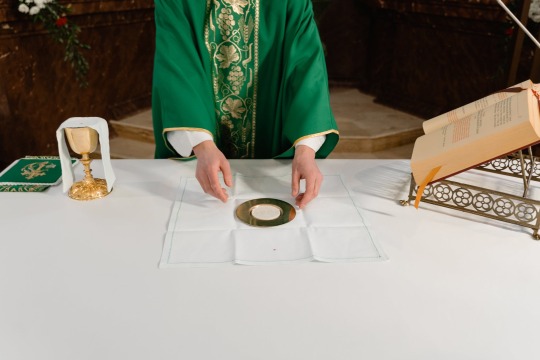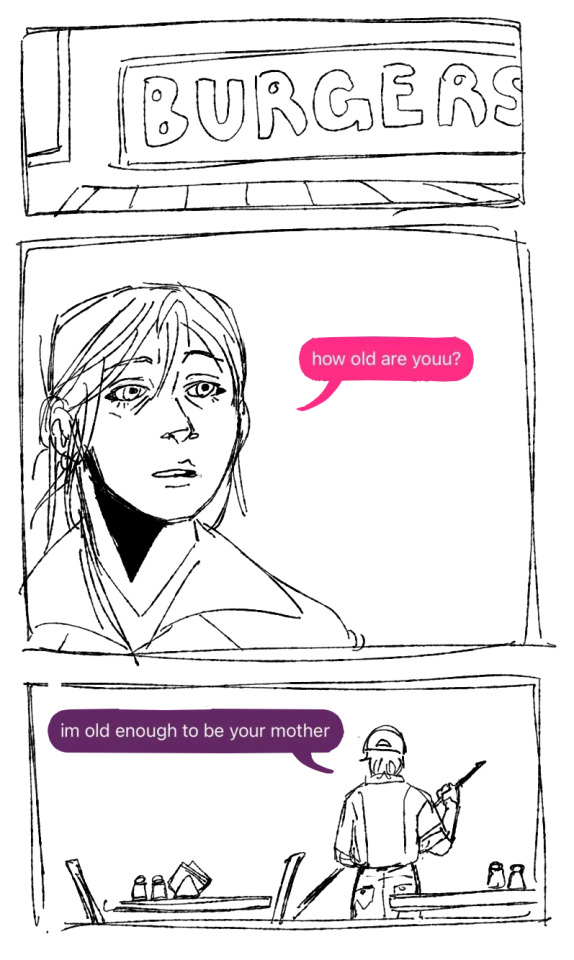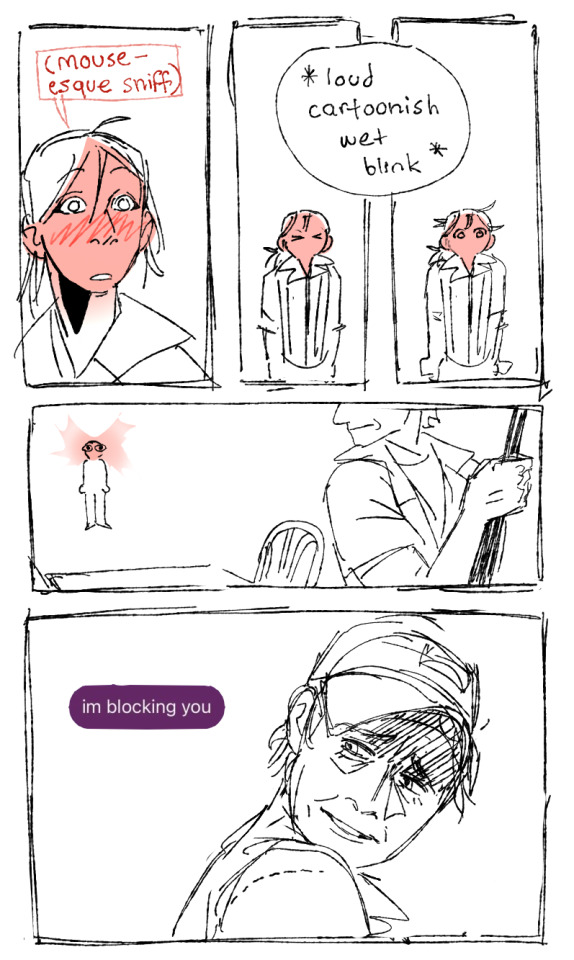#real presence
Text
"Pange lingua" (prayer incl.) – Hymn in honour of the Blessed Sacrament – Gregorian Chant
youtube
#catholic#catholicism#christianity#spiritual warfare#youtube#jesus christ#our lady#blessed virgin mary#exorcist#demon#gregorian chant#chant#roman catholic church#roman catholic#blessed sacrament#exposition#adoration#benediction#real presence#holy eucharist#pange lingua#traditional catholic#monstrance#prayer#sung prayer#lord jesus christ#holy savior#our lord and savior#saviour#savior
11 notes
·
View notes
Text

6 notes
·
View notes
Text
Eucharist?
How do you and I approach the Eucharist?
Is it a reward for good behavior?
We went to Confession, we’re in a state of grace, checked all the boxes, so it’s “good Catholic, here’s your cracker” time?
It is something we do because it’s expected of us?
If we don’t get up will people think we’re big-time sinners? That we’re on our way out of the Church? That we’re trying to break grandma’s heart?
Is it just part of the stand-sit-kneel of Catholic calisthenics?
Another semi-random thing we do without really thinking about it, because it’s on brand (like how we drag Mary into everything)? Because - Catholic stuff?
When you and I approach the Eucharist in any of these ways, what we’re really doing is missing out.
If we’re not calling to mind what – sorry, Who – the Eucharist really is? If we’re not opening our hearts to the real presence of Christ in the Eucharist?
Then we’re missing out on the most intimate moment with the God who loves us that we’ll have on this side of eternity. A moment with God that will change us, if we’re brave enough to let it.
If you’ve ever wondered why Fr. George is so big on us praying the Anima Christi together, this would be the reason.
So, what can we do about it?
Before receiving the Eucharist, remind ourselves of Who is really present – of Who is waiting to be with us and wanting to be with us – in the Eucharist.
One of the best ways to do that comes from St. Blaise (today’s saint). It’s the perfect thing to pray while we’re in line to receive the Eucharist,
“Father of mercy and God of all consolation, graciously look upon me and impart to me the blessing which flows from this holy Sacrament. Overshadow me with Your loving kindness, and let this divine Mystery bear fruit in me.”
Today’s Readings
#Eucharist#Real Presence#God#Jesus#Catholic#Christian#St. Blaise#Change#Moment with God#Catholic Stuff#Moments Before Mass
30 notes
·
View notes
Text
Therefore, anyone who eats the bread and drinks the cup of the Lord in an unworthy manner is guilty of an offense against the body and blood of the Lord. Everyone should examine himself about eating the bread and drinking from the cup. For a person who eats and drinks without discerning the body of the Lord is eating and drinking judgment on himself.
- 1 Corinthians 11: 27-29
14 notes
·
View notes
Text

Elizabeth R. Powell, David Jones and the Craft of Theology
3 notes
·
View notes
Text
Real Presence and Magical Pronouns

We live in an age that really decries anything that is deemed to be "magical thinking". The belief that anything that can't be proven to be governed by Newtonian principles, or other logical processes, is to be questioned. God is a "Magic Man", etc.
I would be surprised if there were any atheists or agnostics who would give "Real Presence" - the idea that anything really, truly, happens during a Christian Communion or Eucharistic service - any credence or credibility. Even most Protestants view the rite as something less - a memorial, maybe. The items used during the ritual are called, "symbols'', or "elements", and aren't really thought of as much beyond the material, "It's just something we do that means this..." Pick your rationale, whether "drawing our minds to Christ'', or at its most basic, "because he (Christ) said so" (Luke 22:19, 1 Corinthians 11:24-25). The Eucharist for many Christians really has become a meaningless ritual.
The idea of Covenant comes up from time to time, but covenant is one of those words that the modern mind doesn't really get. It's in our vocabulary, and we can talk about it as a thing, but to my mind, any descriptions we give of it rely a lot on linguistic gymnastics and are dependent on other words that have become vague to the modern mind. Things such as "contract", "treaty", or "pact", come to mind as fairly concrete translations, but none of those words accurately contain the concept that's been lost. They actually do damage to it by their inadequacy in a culture unable to even comprehend the original idea.
There is a lot going on here that I’ve been thinking about. The idea that words can hang around long after their useful purpose is done, or the idea that you can create something by giving it a name.
But my reason for starting with “Real Presence” has to do with the magical thinking around pronouns. I’ve inherited several thousand years of Indo-European linguistic structure. I’ve studied English formally and have used it casually as my main form of expression for over 50 years. To me, language has always been about clarity, and communication. Apparently, very early in history, dividing things up between genders seemed important. I don’t know if it started with animal domestication or not - I suspect not - but regardless, it was understood that there were differences between the male and the female of any given species. Roosters don’t lay eggs, bulls don’t give milk, etc… It largely revolves around properties of reproduction - eggs are ova, milk is only derived after calving, etc… A hen is not a rooster, a cow is not a bull, and a steer is something else - though castration doesn’t magically make him a cow.
We live in a period of confusion. And while I agree with Alexandra Hudson, that Civility is important, and that none of us should go out of our way to offend, I think that the magical thinking around gender identity really does need to be confronted. It has gotten so bad that calls are being made to criminalize intentionally misgendering someone (1,2,3). Thoughtcrime anyone?
That I could somehow ontologically change who you are by referencing you with a pronoun different to the one you use for yourself, that the reality of your existence changes substantially with the use of the pronoun I use, is magical thinking. All my life I’ve tried to use language for clarity. I’m a technician by trade, so every little thing has a name, and writing is done for clarity. So when I see someone who strikes me as a female, I’m going to call her, “her”, the burden of convincing the rest of us that she is a he, is on her (1,2,3,4) and anything else is willful disregard of rational thought.
If you want to be a “he”, put in the work, become a “he”, and people will call you “he”. There are no shortcuts, like any goal in life it requires a certain amount of ascesis to become what you want to be.
My daughter has started using the word “They” when referring to her friends. It’s weird in such a low-context language to not use the more technically precise words to describe the persons or people in her life - I usually have no idea if she’s just talking about doing something with a singular friend or with a group. She’ll mention a singular friend, use “they”, and it’s reflexive to me, I’ll ask, “oh, who else was there?” She speaks of "language simplicity", and "inclusivity" - not precision or accuracy.
The point of all this is singular. Nobody is immune from magical thinking. We grow up with assumptions, and think we know how the world works. Our history has given us a template to follow, ways of looking at the world, and this will not be changed in a single generation through coercion. I choose to believe in a supernatural reality, something even more real - even though it may not feel that way sometimes - then the physical - Because it encompasses the physical.
Does something happen during the Eucharist? I choose to believe that something does, though I can’t prove it.
Does something fundamentally change in the universe when I misuse a pronoun? I don’t think it does, further, I think it fundamentally distorts observable, concrete, reality - it asks us to communally endorse a psychosis, and directly refutes materialist dogma - nobody with XX chromosomes will ever get prostate cancer - Ever. And athletes with XY chromosomes will almost always dominate their XX chromosome competitors.
It's getting to a point that not even a child can say, "the Emperor has not clothes!"
But increasingly that’s just me.
2 notes
·
View notes
Text
"If a person cannot recognize the obvious presence of God in a living baby in the womb of its mother, then how would they ever discover the presence of God in the mystery of the Eucharist?"
- Bishop David A. Konderla
Read his full letter here:
6 notes
·
View notes
Text
Holy Thursday: We receive the Lord in Holy Communion. Catholic Inspiration
Photo by MART PRODUCTION on Pexels.com
At the Passover meal with his disciples, Jesus inaugurates a new covenant in his Body and Blood that we might enter into Holy Communion with the Lord and one another.
Mass Readings – Holy Thursday, Evening Mass of the Lord’s Supper (#39)
***************
Catholic Inspiration Archives

View On WordPress
#Body of Christ#Catholic#Christian#Disciple#Eucharist#Faith#grace#Holy Communion#Holy Thursday#Homily#Inspiration#Jesus Christ#Last Supper#Love#Mass#Passover#Real Presence#Service
0 notes
Text
Time's Gentle Admonition: George Herbert Faces Death
George Herbert’s poetry poses the vital question: In a violent and dispirited age, are we still capable of imagining “Such a Way, as gives us breath … Such a Life, as killeth death?”
J. R. Ring, Harvest (1885)
This is the fifth time in ten years of blogging that I have observed the feast day of poet-priest George Herbert—”the greatest devotional poet in the English language”[i]—with a reflection on his poetic “heart work and heaven work.”[ii] For me, in our spiritually impoverished secular age, he remains an indispensable guide for a life of prayer. As I wrote in a previous…

View On WordPress
#Death#George Herbert "Life"#George Herbert "The Call"#George Herbert "Time"#Grim Reaper#Helen Wilcox#Incarnatuon#Kimberly Johnson#Louis L. Martx "The Poetry of Meditation"#Paul Zweig#Real Presence#Sacramental bread and wine#Such a Life as killeth death#the senses#Time
0 notes
Text
if i think about the hunger games in peeta's perspective i WILL start sobbing
#imagine you're a boy who's going to die. you're in love with the girl you've been watching from afar. you know your fate.#you just want to help her‚ but then there's the announcement and she's here in front of you‚ kissing you‚ risking her life for you and you#think‚ i could live and i could love. you think she loves you when she hands you the berries‚ when she puts them in her mouth.#then you both survive and you go back home and nothing is real anymore. you have nothing. no family. no friends. no love. just an empty#house. a drunk for a neighbor. the love of your life walking into somebody else's arms. you think‚ i survived the games. i could survive#this. and you also think‚ i should've bit down on those berries‚ should've felt the juice burst before i died.#and then the third quarter quell announcement rings in your ears and you think‚ she will live and i will die as i should have in the first#place. the girl you love kisses you on the beach and somewhere you heart stirs and your mind revolts and you savor every touch she has ever#given to you‚ in front of the cameras and off. because you are a tribute and you are always being watched and snow's presence looms and#you think‚ i know she cares. but you get taken. you get drugged. you get tortured‚ your mind altered. the girl is a mutt‚ a murderer. she's#everything you despise‚ your mind stirs. your heart revolts. you gain more awareness but cannot distinguish reality from fiction and you#have never known katniss' love. the war ends. you heal. you come home. you plant primrose for her. years down the line‚ you grow in love#more than you thought possible. but some days‚ you cannot tell fiction from reality so you ask the love of your life‚ you love me.#real or not real? and she says‚ real‚ and kisses you.#and you sigh and kiss her back and revel in this. a home. a life. a love.#lit#the hunger games#everlark#otp: real or not real?#katniss everdeen#peeta mellark#text#tais toi lys#thgpost
18K notes
·
View notes
Text

Don’t give what is holy to dogs (Mt 7:6)
0 notes
Text
Because of the unity of the person in the incarnate Son, the human nature--the body and the blood--can be as present everywhere as the divine nature is and wills to be.
~Gerhard O. Forde, Theology is for Proclamation, 176.
1 note
·
View note
Text
A moment with God
(by request, my homily from Sunday) *
How do you and I approach the Eucharist?
Why do we get up to receive Holy Communion?
What’s going through your mind? What’s in your heart?
How do you and I approach the Eucharist?
Is it a reward for good behavior?
We went to Confession. We’re in a state of grace. Checked all the boxes, so it’s “good Catholic, here’s your cracker” time?
It is something we do because it’s expected of us?
If we don’t get up, will people think we’re big-time sinners? That we’re on our way out of the Church? That we’re trying to break grandma’s heart?
Is it just part of the stand-sit-kneel of Catholic calisthenics?
Another semi-random thing we do without really thinking about it. Because it’s on brand (like how we drag Mary into everything)? Because - Catholic stuff?
When you and I approach the Eucharist in any of these ways, what we’re really doing is missing out.
If we’re not calling to mind what – sorry, Who – the Eucharist really is? If we’re not opening our hearts to the real presence of Christ in the Eucharist?
And you’re thinking, “Wait, what was that Who-the-Eucharist-really-is” stuff? What do you mean by ‘real presence’?”
Those are fair questions.
This unconsecrated host? It’s flour, water. And that’s it. That’s the recipe. Not even salt.
It is the most basic cracker on the planet.
And yet, during the Consecration, the most basic cracker on the planet becomes the body and blood, soul and divinity of Our Lord, Jesus Christ.
How is that possible?
I’m just going to say the quiet part out loud. It’s not popular. But it’s the truth.
It is a miracle. It is literally a miracle. You and I get a miracle at every Mass.
It’s a miracle that Jesus explains in the sixth chapter of the Gospel of John. What we call the bread of life discourse. Jesus gives us the reasons for this miracle, that’s why we do it.
It’s a miracle that happens for the first time at the Last Supper. All of the, “this is my body, this is my blood” stuff from the Eucharistic Prayer? That’s where it comes from. Jesus shows us how to do it.
The Last Supper is also where we get told to do it. We’re following His lead.
But it doesn’t look any different.
True. The consecrated host that you receive when you come up for Holy Communion won’t look any different than this unconsecrated one.
But at the consecration there’s a change, a movement. It’s the same movement that Jesus shows us over and over in today’s Gospel – moving from surface appearances to the deeper reality.
So that the consecrated host that you receive will in fact be radically different from that unconsecrated one.
How is that possible?
It’s like this. Think of your spouse, your significant other, someone you really love. Who really loves you.
Now think about the first time they told you that they loved you.
What was going on inside of you, when they told you they loved you? What did that feel like?
It’s hard to describe, isn’t it? Because for you, the world changed in that moment. Everything inside you, everything you thought, everything you felt, just lit up.
Do you know what you looked like to them in that moment? The moment after they told you they loved you for the first time?
Just the same as you did the moment before they told you they loved you for the first time. Same eyes, same nose, same goofy smile.
And yet, somehow everything about you was different.
It’s kind of like that with the Eucharist.
Only the love behind it? Is even greater.
Let that sink in for a moment.
If we’re not calling to mind Who the Eucharist really is? If we’re not opening our hearts to the real presence of Christ in the Eucharist?
Then we’re missing out. On the most intimate moment that you and I will have with the God who loves us on this side of eternity.
A moment with God that will change us, if we’re brave enough to let it.
If you’ve ever wondered why Fr. George is so big on us praying the Anima Christi together, this would be the reason.
So, what can we do, about how we approach the Eucharist?
Before receiving the Eucharist, remind yourself of Who is really present – of Who is waiting to be with you and wanting to be with you – in the Eucharist.
One of the best ways to do that is a prayer that comes from St. Blaise. You can find it at the end of my letter in the bulletin.
And it’s the perfect thing to pray while we’re in line to receive Our Lord in the Eucharist,
“Father of mercy and God of all consolation, graciously look upon me and impart to me the blessing which flows from this holy Sacrament. Overshadow me with Your loving kindness, and let this divine Mystery bear fruit in me.”
Sunday’s Readings
* If you’re thinking that this looks like a long version of something I recently posted, you are right. When I was praying (the Divine Mercy) before writing my homily for Sunday, God sent me back to that post. I don’t question His lead (at least not with this stuff - other parts of my life? let’s just say I’m a work in progress). I’ve learned that it means He’s got someone who needs to hear it. Besides, this is God’s thing, not mine.
#Eucharist#Moment with God#God#Jesus#Catholic#Christian#Church#Real Presence#Miracle#St. Blaise#Prayer#Moments Before Mass
24 notes
·
View notes
Text
Real presence

Yes, one can share a "virtual handshake, hug or kiss." Obviously, the various virtual versions of such greetings are not quite the same (or nearly as satisfying!) as their physical equivalents but isn't a virtual greeting (in whatever form it takes) better than the opposite (a virtual slap, thumbs down, or middle finger)?ĭoesn't a virtual greeting still connect people in a very real and significant way? "Real Presence" is not just "Physical Presence"Īlthough I agree with both authors that "some things demand real presence," it's essential to understand that "real presence" is not the same as, nor limited to, "physical presence." It's amazing how many Catholic priests and people seem to have forgotten this." In his most recent "Letter from Rome," Robert Mickens similarly seems to assume that the only "real presence" is "physical presence." He writes, "Let's be clear: we cannot really 'participate' in a virtual Mass any more than we can share a virtual handshake, hug or kiss. The best of Catholic theology avoids simplistic divisions: yes or no, all or nothing, presence or absence, reality or non-reality. To avoid such false oppositions, we need greater terminological precision and philosophical nuance. "real," when the difference is actually between "virtual reality" and "physical reality." Both are "real," although in different ways. Here Grayland slips into a false dichotomy, now opposing "virtual" vs. What distinguishes 'virtual reality' from 'real-reality' or 'virtual presence' from 'real presence' and makes one proper for the celebration of the Eucharist and the other not?" Shortly later, in asking whether a "digital solution" is appropriate for our celebration of the Eucharist, Grayland says, "The answer depends on how one understands reality, the virtual and presence. My answer: No, they are not exactly the same yet this does not mean that one type of "presence" is "real" while the other is "not real." Grayland astutely asks, "Is the quality of my digital presence of the exact same quality as my physical presence?" In a recent article in La Croix International, J.P. One current topic of heated discussion is the "virtual" celebration of the Eucharist, and the related question of about what is "real." The coronavirus pandemic, tragic as it is, is also inspiring pastoral reflection and theological debates that will hopefully bring the Church to deeper insights and renewed practices. (This is the first of a two-part article. (Photo by Martà Navarro/SOPA Images via ZUMA Wire/MaxPPP) Graylandįelix Just SJ, United States, April 28, 2020Īn elderly woman watching Mass online in Spain. Real Presence and Virtual Liturgies (Part I) - A Response to Robert Mickens and J.P. La Croix - Real Presence and Virtual Liturgies "Real Presence and Virtual Liturgies"Ī two-part article published in La Croix International, April 28-29, 2020

0 notes
Text




the passangerette
#sorry.#also benson w/o the stache is like an angel w/o their wings ..#whatever. hi everyone.#the pipeline is real i still gotta track down which passengerposter specifically slathered that movie all over my dash fooling me into thi#thinking it was a big big presence on tumblr and . akhem (looks around the room) well#the passenger#benson the passenger#randy bradley#22ratonthestreet#dima's silly little scribbles#is his tag genuinely 'benson the passenger' ... good god
623 notes
·
View notes
